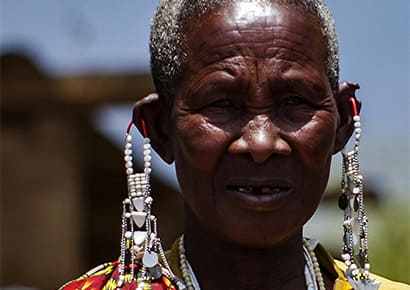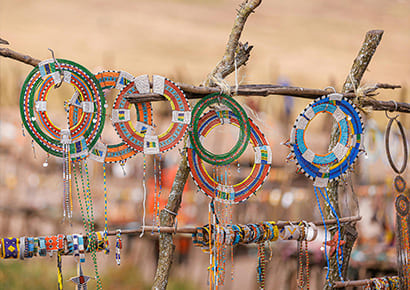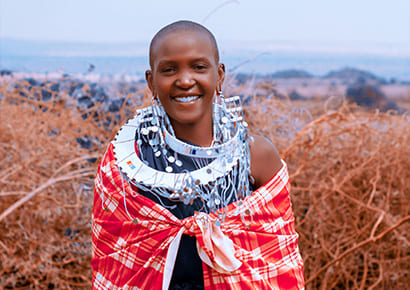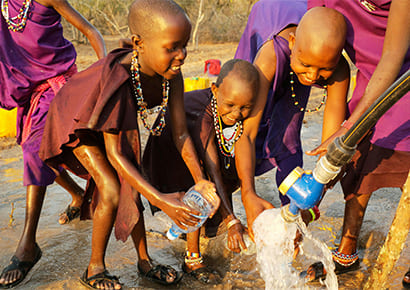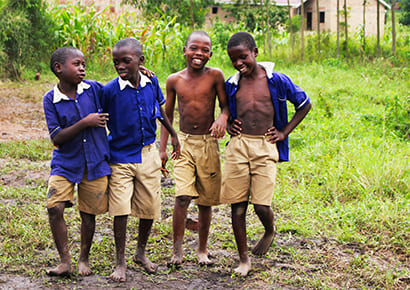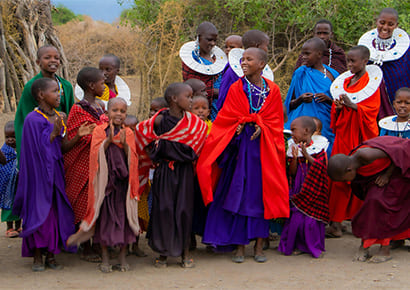"The Art & Crafts."
The Art and Crafts activities led by Maasai native women offer an immersive and authentic
cultural experience for tourists, allowing them to engage in a variety of traditional crafts
while learning about Maasai heritage.
Art and Craft Activity includes;
1. Drawings and Paintings.
Tourists are invited to participate in engaging art sessions where they can create drawings
or paintings inspired by the vibrant cultures of Tanzanian villages. These activities are
facilitated by talented individuals and artisan groups from different communities, who share
their unique styles, stories, and techniques. Participants are introduced to traditional
patterns, colors, and symbolic elements often found in rural artwork—such as depictions of
animals, landscapes, daily life, and spiritual beliefs. This activity reflect the broader heritage of surrounding ethnic
groups, allowing guests to experience a richer, more diverse expression of Tanzanian art.
2. Beading.
Beading is a significant aspect of Maasai culture, with intricate designs used in jewelry,
accessories, and adornments. Maasai women guide tourists through the process of creating
beaded necklaces, bracelets, earrings, and other accessories, using vibrant glass beads. The
designs are taught to reflect various life stages, social status, or ceremonial events,
allowing tourists to learn about the symbolism behind each design. They can create their own
pieces while learning the traditional techniques of stringing, knotting, and bead selection.
3. Leather Products Making.
The Maasai are skilled in working with leather, creating durable and functional items like
sandals, belts, bags, and decorative accessories. Tourists can engage in hands-on activities
to craft simple leather goods, learning techniques passed down through generations. Under
the guidance of Maasai women, participants will experience the process of cutting,
stitching, and dyeing leather, as well as customizing the designs to their preferences.
Along the way, they'll learn about the historical and cultural significance of leatherwork
in Maasai life. These activities provide tourists with the opportunity to not only learn new
skills but also understand the deeper cultural traditions that Maasai women have preserved
and continue to pass on. The workshops often culminate in the creation of a unique,
personalized souvenir that embodies the knowledge gained during the experience.
"Educational Support for Maasai Kids & Travel with Cause Program"
The Maasai community, with its rich cultural heritage, faces challenges in accessing quality
education for its children. Many factors, including geographical isolation, limited
resources, and cultural barriers, contribute to educational inequities. However, initiatives
that focus on education and community support can make a significant difference.
Through a program like Travel with Cause, tourists can play an active role in improving
the lives of Maasai children while learning about their unique culture.
This initiative offers travelers the opportunity to volunteer, teach, and provide
much-needed educational support in exchange for an enriching cultural experience.
Program Overview.
The Travel with Cause program is designed to connect tourists with the Maasai community,
where they can volunteer as teachers and contribute to the education of Maasai children. In
addition to volunteering, travelers can assist by donating and raising awareness for
educational materials, meals, and the sustainable development of schools in the Maasai
community.
How You Can Help.
Tourists and volunteers can make a meaningful impact by contributing in various ways:
Teaching and Volunteering;
Volunteers can assist with teaching basic literacy, numeracy, and other subjects like
numbers, writing, reading and drawing. Children in the Maasai community often struggle with
learning English and Swahili. Volunteers can engage in language-based activities to improve
communication skills. Cultural exchange is a two-way street; tourists can also learn about
Maasai traditions, customs, and local crafts, which makes the teaching experience more
impactful for both sides.
Educational Materials;
Many schools in the Maasai communities lack essential teaching materials such as books,
stationery, and educational kits. Contributions from tourists can provide these items to
classrooms, giving students the resources they need to thrive. Items such as whiteboards,
drawing marks, exercise books, reading and numbers tools, and picture books can make a huge
difference in enhancing the learning environment.
Meals for Students;
Proper nutrition plays a key role in children’s ability to learn and concentrate. Many
Maasai children face food insecurity, making it difficult for them to focus in class.
Volunteers and tourists can help fund meal programs that provide children with nutritious
food, ensuring they are physically and mentally prepared for school.
Teacher Salaries;
Teachers in the kindergartens work on volunteer-based salaries. Support from tourists can
help cover teacher salaries, which will ensure the continued success and sustainability of
local schools. Adequate pay attracts qualified educators, ensuring long-term improvements in
the quality of education.
Benefits for Tourists;
-
Cultural Immersion: Travelers gain an
authentic, hands-on experience in Maasai culture, including participating in traditional
ceremonies, dances, and learning about local customs and way of life.
-
Make a Difference: By volunteering and
contributing to the local community, tourists can leave a lasting positive impact,
knowing their efforts directly benefit the children’s future.
-
Meaningful Connections: Volunteers create
personal connections with the Maasai people, fostering a deep understanding of the
challenges and joys they face daily.
-
Unique Educational Experience: Tourists have
the opportunity to not only teach but also learn from the Maasai community, enriching
their perspectives on education, culture, and global development.
-
Program Impact: Short-term: Tourists provide
immediate relief by offering teaching assistance, educational resources, and meals,
improving the day-to-day experience for kids and teachers.
-
Long-term: The program’s goal is to build a
foundation for sustainable educational growth in the Maasai community, ensuring better
access to quality education for future generations of children.
Through the Travel with Cause program, tourists have the opportunity to immerse
themselves in Maasai culture while making a tangible difference in the lives of
children. Your involvement—whether through teaching, providing educational supplies, or
supporting meals and teacher salaries—helps ensure that the children of the Maasai
community have the tools they need to succeed. By joining hands with the Maasai, you
contribute to the creation of a brighter, more educated future.


